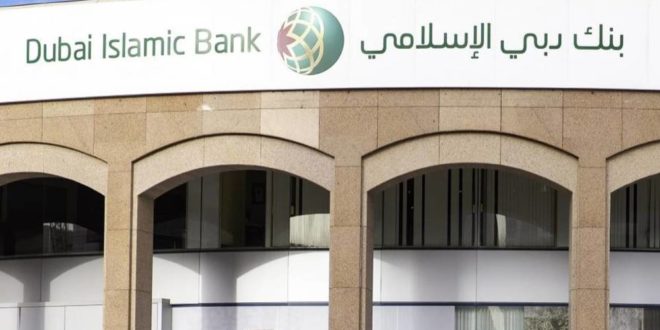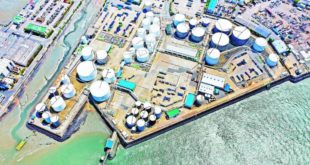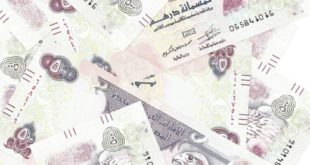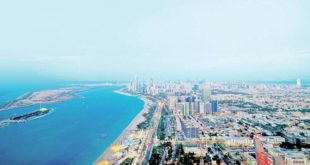Dubai Islamic Bank recorded a net profit of 1.5 billion dirhams in the first quarter, a growth of 12% compared to 1.34 billion dirhams, on the back of higher revenues. Net financing and sukuk investments grew by 1% since the beginning of the year, to reach 240 billion dirhams, and total new subscriptions in the first quarter amounted to about 21 billion dirhams, compared to 15 billion dirhams in the same period last year.
Total income increased to AED 4.43 billion compared to AED 3.016 billion, recording a strong growth of 47%. Net operating income achieved a strong growth of 12% year-on-year to reach AED 2.75 billion. Net operating profit amounted to 2.01 million dirhams, recording a strong growth of 14% year-on-year, compared to 1.77 billion dirhams in the first quarter of 2022.
Customer deposits amounted to 198 billion dirhams, with current and savings accounts accounting for 40% of Dubai Islamic Bank’s deposit base.
New funds
The bank’s total new financing increased during the first quarter to 15.8 billion dirhams, a growth of 35%, compared to 11.7 billion dirhams in the first quarter of 2022. This growth comes on the back of the strong performance of corporate and individual financing activities, which reinforces Dubai Islamic Bank’s strong position in the market. It reflects the desire of companies to achieve more growth. The bank’s fixed income portfolio amounted to 55 billion dirhams, with a growth rate of 6% from the beginning of the year until the end of the first quarter.
In addition, impairment losses continued to decline to record AED 496 million, down 24% on a quarterly basis.
The non-performing financing ratio remained stable year-to-date at 6.5%, down by 20 basis points compared to the first quarter of 2022.
The cost to income ratio was 26.9%, 140 basis points lower year-on-year, and remained within guidance levels. Liquidity maintained good levels, with the liquidity coverage ratio reaching 156%, and the net stable funding ratio reaching 108%.
Continuous expansion
Mohammed Ibrahim Al Shaibani, Director of the Court of His Highness the Ruler of Dubai and Chairman of the Board of Directors of Dubai Islamic Bank, said: “The UAE economy is witnessing continuous expansion at a rapid pace, due to the rise in energy prices, the increase in commercial activities and the return of tourism activity, which has boosted the levels of local spending on the retail sector. The banking sector is still immune from global contagion, and it still represents a solid base with its steady growth in its balance sheets and increasing levels of profitability, which led to Dubai Islamic Bank achieving strong and distinguished results in the first quarter of this year.”
He added: «We are also witnessing the UAE moving forward in the transition to a green economy, and we at Dubai Islamic Bank remain fully committed to sustainable development, and in this context we have integrated a complete sustainability strategy within our medium and long-term goals. In addition to this commitment, we successfully issued the second sustainable sukuk (one billion dollars) during the first quarter of the year, which recorded an excellent turnout by investors, as the subscription exceeded the number of bonds offered in the financial markets.”
The return of commercial and tourism activity
d said. Adnan Chilwan, Group Chief Executive Officer of Dubai Islamic Bank: “The operating environment in the UAE has maintained its strength in the midst of the complex challenges of the global economy. The return of commercial and tourism activity, the increase in spending on the retail sector, as well as the increase in the profitability of the banking and finance sector, reflect the growing confidence of consumers in the local economy. In this sense, the government-related bodies continue to maintain strong budgets, with a cash surplus, against the backdrop of the UAE’s economic stability, which allowed these bodies to reinvest in the country’s expansion business plans.
He added: «The UAE also witnessed strong growth in employment levels, as it increased during 2022 by 38% compared to 2021, due to the growth in the number of new private sector establishments by 11%. This trend is in line with the country’s continued commitment to building a broad knowledge-based economy. In light of the current global events, DIB’s asset quality has remained strong with the non-performing financing ratio stable at 6.5%. The total coverage rate and the cash coverage ratio also recorded good growth, which reflects the bank’s prudent approach to risk management.
And Chilwan continued: “During the first quarter, Dubai Islamic Bank continued to achieve outstanding profitability, as net income reached 1.5 billion dirhams, an increase of 12% year-on-year, on the back of achieving stronger profit margins and applying continuous cost controls. Net profit margin improved strongly by 50 basis points year-on-year, to 3.2%, in a trend that reflects rising rates globally.”
He said: «The bank’s total new financing increased during the first quarter of the year 2023 to reach 15.8 billion dirhams, recording a strong growth of 35%, compared to 11.7 billion dirhams in the first quarter of 2022. This growth comes on the back of the strong performance of corporate and individual financing activities, the matter Which reinforces Dubai Islamic Bank’s strong position in the market, and reflects the desire of companies to achieve more growth. The bank’s fixed income portfolio currently stands at 55 billion dirhams, with a growth rate of 6% year-to-date, as the bank continues to invest in highly rated sovereign sukuk.
total bank income
The bank’s total income increased in the first quarter of 2023 to reach 4.43 billion dirhams, with a strong growth of 47% year-on-year compared to 3.01 billion dirhams, on the back of strong income from financing assets. This recovery is evident in the bank’s net operating income, which grew by 12% year-on-year to reach 2.75 billion dirhams, compared to 2.46 billion dirhams achieved last year.
Earnings before impairment charges increased by
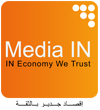 Media ININ Economy We Trust
Media ININ Economy We Trust

